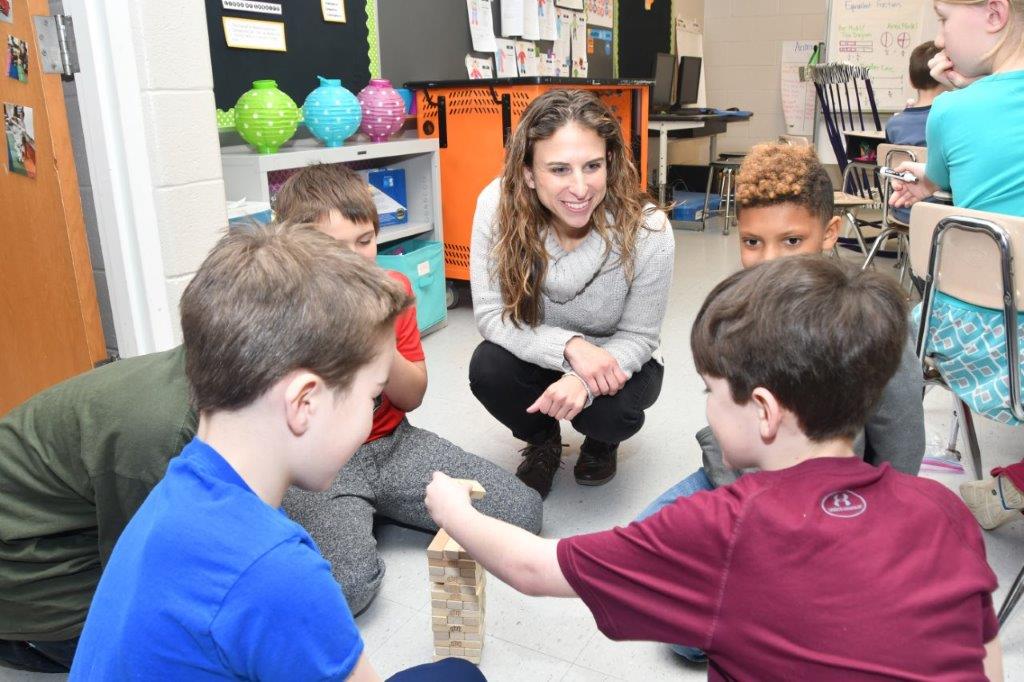Teresa Beilstein
I am an AACPS: Teacher, South Shore Elementary School | 2019 AACPS Teacher of the Year
As the 2019 Teacher of the Year, people often ask me what topic I think is the most important in education today. My answer is always the same: the mental health of our students. Mental health knows no socio-economic or geographic borders. From demands related to high stakes testing to the stress caused by a difficult home life or childhood trauma, many students find themselves in an environment that feels overwhelming. Mental health has the potential to have a profound impact in many issues such as chronic absenteeism, school violence, and suicide. Many students struggling with mental health do not know where to turn and when they do turn to their teachers, too few educators have the training or time to provide the effective support our students need. Just as educators strive to create critical thinkers able to reason through an issue, we should be empowering emotionally healthy students able to self-regulate their emotions.
This issue is personal to me because I was a student who struggled with anxiety all through elementary school. I would cry every morning–kick and scream and fight while leaving the house, terrified to go to school. I would sit at my desk with my stomach in knots, unable to focus and counting the minutes until the end of the school day. No one really understood what was happening inside of me, least of all me. I did not know where to turn and though I had caring and loving teachers and family, no one actually addressed the root cause of my behavior, which was my anxiety. I never want a child to go through that experience. I have the opportunity to help kids who are struggling academically, socially, and emotionally. That is my privilege as a teacher.
There was a study done in the late 1990s called the Adverse Childhood Experience study that I think about a lot. The participants answered a series of questions regarding their experience with abuse, neglect, and other potentially traumatic adverse childhood experiences (ACES) that occurred under the age of 18. Researchers found that experiencing trauma alters the development of the human brain with long term impacts such as increased depression and suicide attempts later in life. The findings go on to say that these experiences affect not only the child who experiences the trauma, but also the kids who interact with that child in the classroom. 21% of students nationwide reported two or more adverse experience before they turned 18. That is a tremendous number of kids at risk for serious mental health problems now and in the future just from trauma alone. Further research done on this issue has told us that early intervention by trusted adults, like teachers, has a positive impact on these children’s projected outcomes. What a position to be in as a teacher. With the proper training and support, we can help these kids!
Countless students, faculty, and staff in our school system struggle with mental health every day. Destigmatizing these issues and educating teachers and staff on how to support each other and our students is crucial for us to grow as learners and as people. This year I am participating in a mental health task force. It is a partnership between AACPS and Anne Arundel County Mental Health Agency to tackle the issue of mental health in our schools. Being in a room full of clinicians, policy makers, law enforcement, and educators made me see how global this problem is, but also how many people are in this fight. I am so proud to be one of them and will continue to publicize this issue and advocate for better training for our teachers and more support for our kids!



